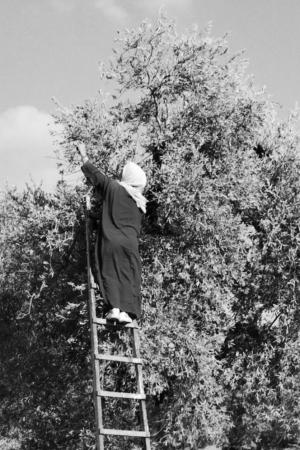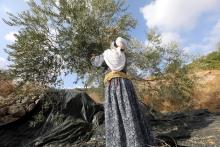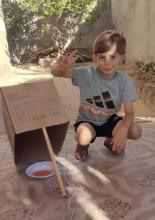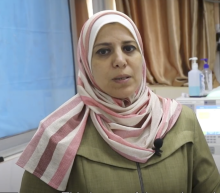Statelessness is the political weapon of a colonial project that fragments and displaces a nation
Dr. Shahd Qannam, Palestinian human rights practitioner and legal expert
KEY ISSUES ON PALESTINE AND STATELESSNESS
- Following the 1948 Palestinian Nakba and the establishment of Israel, Palestinians face a cycle of inter-generational refugeehood and statelessness that continues to this day.
- The “statelessness” of Palestinians is the product of a deliberate political strategy by Israel to obstruct the Palestinian people’s exercise of their right to self-determination and deny Palestinian refugees and internally displaced persons (IDPs) their recognised right of return to their homeland.
- Despite the 1965 Casablanca Protocol, which aimed to secure rights to work, travel, and residency for Palestinian refugees in Arab states, inconsistent enforcement has left many Palestinians without legal protection or recognition.
- Palestinian refugees are systematically excluded from the protections offered under international refugee law, including the 1951 Refugee Convention and the 1954 Statelessness Convention, leaving them without effective legal safeguards both inside historic Palestine and in host countries.
- A distinct protection and assistance framework (UNCCP & UNRWA) was created to address the question of Palestine, yet displaced Palestinians continue to face significant and expanding gaps in legal protection and durable solutions.
- The denial of nationality to Palestinians reinforces broader patterns of control and legal hegemony, linking statelessness directly to the ongoing denial of Palestinian right to self-determination.
- Intergenerational statelessness perpetuates legal and political marginalisation, as successive generations of Palestinians remain excluded from formal institutions and basic rights due to Israeli settler-colonialism, forced displacement, and apartheid.
PALESTINE AND THE QUESTION OF STATELESSNESS
Palestinians are often referred to as the world's largest stateless population, with an estimated global population of approximately 14.9 million people, nearly half of whom live outside historic Palestine. This “statelessness” stems from mass forced displacement during the 1948 Nakba and subsequent waves of displacement, and ongoing military occupation of the West Bank, Gaza, and East Jerusalem, leaving many Palestinians without recognised citizenship and subjected to complex legal and political statuses. The question of Palestinian statelessness is multifaceted, shaped not only by legal and political conditions but also by collective memory, history, and national identity. While many Palestinians are deprived of legal recognition as citizens, this does not erase their sense of belonging or national identity. For countless Palestinians, identity is rooted in shared history and attachment to their homeland, creating a form of belonging that exists independently of state recognition. In this sense, the lived reality of Palestinian identity resists the confines of legal definitions; Palestinians maintain a profound sense of collective continuity, community, and historical rootedness that challenges the very notion that statelessness can fully capture their lived experience.
From a legal perspective, Palestinian statelessness is not merely the absence of nationality but the systematic denial of the Palestinian people’s right to self-determination and statehood. Before the Nakba, Palestinians held Ottoman and then Palestine Mandate citizenship under the 1925 Palestine Citizenship Order. Israel’s Nationality Law of 1952 repealed this order and imposed separate criteria for Jews and Arabs, deliberately excluding displaced Palestinians. By 1952, nearly a million Palestinians were effectively stripped of citizenship en masse, with return efforts violently obstructed.
Nationality signifies legal membership in a sovereign community; when sovereignty is deliberately blocked, statelessness becomes a tool of domination. In the Palestinian case, the root problem is not a legal loophole in nationality frameworks, but the intentional obstruction of Palestinian national rights, particularly the right to self-determination. Palestinian refugees and their descendants remain excluded from both host country citizenship and, in many cases, international refugee protection. The denial of their right of return entrenches their statelessness, with Palestinian identity and rights tied to a homeland from which they are systematically barred. By severing the legal, political, and physical connection between the people and their homeland, Israel entrenches a system of domination that prevents Palestinians, wherever they live, from reclaiming their property, returning to their lands, and participating fully in determining their political future. These are not peripheral matters, but core elements of self-determination as recognised under international law.
This colonial regime translates into systematic restrictions on fundamental rights. Freedom of movement is curtailed by military checkpoints, permit regimes, and barriers across borders. Family unity is fractured by Israeli laws denying family reunification, compounded by restrictive residency policies in other states that host Palestinian refugees. The effects are generational: children born into statelessness inherit the same disenfranchisement, displacement, and dependency on temporary documentation. This, in turn, limits access to quality education, healthcare, and dignified employment, locking many into structural vulnerability that persists across decades.
At the same time, Palestinians face widespread social marginalisation both in host states and within the global diaspora. Legal discrimination, exclusion from political participation, and restricted access to public services are common features of their lived reality. This marginalisation is reinforced by the deliberate fragmentation of the Palestinian people into separate legal and political categories; those in exile, those under occupation, and those holding Israeli citizenship – each subjected to a different system of control. The result is a purposeful dispersal and weakening of Palestinian collective agency, designed to undermine their capacity to act as a unified nation in pursuit of self-determination.
HISTORICAL BACKGROUND
A sequence of key historic events lies at the heart of questions surrounding Palestinian statelessness. These include the 1917 Balfour Declaration, the 1922 League of Nations decision to grant Britain the Mandate over Palestine (during which period, large numbers of Palestinians were denationalised by British policies that were later adopted and perpetuated by the Israel following its establishment), and Britain’s subsequent decision in 1947 to relinquish that mandate.
In 1947, the United Nations General Assembly sought to address the “Palestine question” through adopting Resolution 181, known as the “Partition Plan” which proposed the creation of both an Arab state and a Jewish state. On 14 May 1948, as the British Mandate ended, the State of Israel declared its independence.
The following day, 15 May 1948, marked what Palestinians refer to as the Nakba, or “Catastrophe,” when hundreds of Palestinian villages were destroyed and more than 700,000 Palestinians were forcibly expelled from their homes and dispersed across the region. During this period, an estimated 276,000 Palestinians were displaced to the West Bank and between 160,000 and 190,000 fled to the Gaza Strip. An estimated one-fifth of Palestinians were forced to leave Palestine altogether: 100,000 to Lebanon; 100,000 to Jordan; between 75,000 - 90,000 to Syria; 7,000 - 10,000 to Egypt, and 4,000 to Iraq.
Between 1948 and 1966, Palestinians living within modern-day Israel were increasingly subjected to policies that disenfranchised them and treated them as second-class citizens and forced many into internal displacement. During this period, military rule was imposed, stripping them of many civil and political rights. Their lands were systematically confiscated and expropriated, and even basic movement required applying for permits to travel between towns.
In 1967, the Six-Day War marked a further turning point for Palestinians, dramatically reshaping the political and geographic landscape of the region in a way that continues to define the situation today. As a result of the war, Israel seized and occupied the West Bank and East Jerusalem (then under Jordanian administration), the Gaza Strip (then under Egyptian control), the Golan Heights in Syria, and the Sinai Peninsula in Egypt. This marked the beginning of a new phase in the colonisation of historic Palestine – an era defined by military occupation and the expansion of Israeli settlements. Almost immediately, settlements were established in the occupied territories, while Palestinians living there were subjected to restrictions, military control, and, in many areas, blockade.
Since 1967, Israeli colonial expansion in the West Bank and East Jerusalem has continued despite repeated international condemnation and UN Resolutions reaffirming that such settlements are illegal under international law. Palestinians face ongoing home demolitions, forced evictions, and residency revocations, alongside violence that leads to displacement and deaths. Human rights groups and UN experts describe these policies as part of a systematic regime that entrenches discrimination and resembles apartheid.
Today, millions of Palestinians remain in exile in neighbouring countries such as Egypt, Lebanon, Syria, and Jordan, as well as throughout the wider diaspora, despite UN General Assembly Resolution 194 (III) affirming their right to return to their homes and receive compensation. For them, statelessness is not only a legal predicament but also the consequence of decades of forced displacement and the erasure of cultural, residential, and national rights since 1948.
*Videos below are part of the ongoing project "We Were and Still Are... Here" by Tarek Bakri, documenting personal stories of displaced Palestinians. Visit https://tarekbakri.com/ to learn more about the project and see more videos.
TREATMENT OF PALESTINIANS UNDER INTERNATIONAL LAW
The international system for the protection of Palestinians was set up at a time when the so-called “Palestinian refugee problem” was expected to be temporary, and this system has since proven structurally incapable of coping with what has become a protracted situation. International responsibility for Palestinian protection and durable solutions is fragmented and split between multiple conventions and UN agencies, to the extent that no singular regime is able to offer adequate protection to Palestinian refugees – including a secure legal status – or provide opportunities for durable solutions. Unlike other refugees and stateless people, the protection framework for Palestinians is rooted in and divided between two agencies: the United Nations Conciliation Commission for Palestine (UNCCP) and the United Nations Relief and Works Agency for Palestine Refugees in the Near East (UNRWA). This split in responsibilities has created a fragmented protection system, further exacerbated by the non-operational status of the UNCCP and the limited scope of UNRWA’s mandate. As a result, a significant protection gap persists. Additionally, States’ inconsistent policies and practices toward Palestinians, including selective application of both the 1951 Refugee Convention and 1954 Statelessness Convention, further deepen this gap. Ultimately, the core issue is not just the inadequacy of institutional frameworks, but the broader structural failure and international inertia that prevent the provision of full protection for Palestinians and the end of settler-colonialism in Palestine.
Depending on where they are, displaced Palestinians may be eligible to receive assistance from the UNRWA or else for protection as a refugee and/or stateless person under the 1951 and 1954 Conventions. UNRWA operates only in the West Bank (including East Jerusalem), Gaza, Lebanon, Syria, and Jordan. Its mandate in these areas encompasses “Palestine refugees”, defined as those whose normal place of residence was Palestine during the period 1 June 1946 to 15 May 1948, and who lost both home and means of livelihood as a result of the 1948 conflicts, as well as their descendants.
Article 1D of the 1951 Refugee Convention specifies that individuals who already receive protection or assistance from a UN agency other than UNHCR are excluded from refugee status under the Convention. At present, the only UN agency to which this applies is UNRWA and so, as outlined in the UNHCR Handbook on the 1951 Convention, Article 1D excludes Palestinians residing in the specific areas of UNRWA operation and who are receiving protection or assistance from UNRWA. All other Palestinian refugees are entitled to refugee status under the Refugee Convention (including in cases where UNRWA protection or assistance has ceased). The 1954 Statelessness Convention was drafted as a sister instrument to the Refugee Convention and includes a similar exclusion clause to Article 1D in its Article 1(2)(i).
In practice, there is no consensus by states around the interpretation of Article 1D and a significant lack of caselaw or guidance around Article 1(2)(i). States commonly interpret these exclusion clauses expansively, with the effect that Palestinians are unable to access protection as 1951 Convention refugees in their host countries. For example, some countries determine that a person falls under the exclusion clause even when they are applying for 1951 Convention refugee status in areas outside of UNRWA’s five fields of operation. Other countries have determined that the inclusion clause can only come into effect when UNRWA completely ceases to operate and cannot take effect just because individuals have left its geographical area of operations. UNHCR attempted to clarify the application of 1D in relation to Palestinians through a 2013 Note on interpretation, emphasizing that the purpose of the exclusion clause was to avoid overlapping competencies between UNHCR and UNRWA. However, inconsistent interpretations of 1D have persisted and as a result, Palestinians “remain unable to access adequate protection in many countries, or face lengthy legal battles to do so”.
At the regional level, an important attempt to address these gaps was the 1965 Casablanca Protocol on the Treatment of Palestinians in Arab States, adopted by the League of Arab States. The Protocol affirmed that Palestinians should retain their Palestinian identity, while guaranteeing them the right to employment, residency, and freedom of movement in host Arab states on par with citizens, without undermining their status as refugees with the right of return. At the same time, it entrenched restrictions by blocking Palestinians from accessing an Arab host country’s citizenship through naturalisation. Regardless, it is important to note that acquiring citizenship from another country would not resolve Palestinian statelessness or refugeehood, as this is subject to the fulfilment of the rights of self-determination and return. Moreover, the majority of Arab states grant nationality only jus sanguinis through the father, meaning that children born to Arab mothers and Palestinian fathers are excluded from nationality rights. In practice, however, implementation of the Protocol has been inconsistent and politicised; some Arab states incorporated its provisions into domestic law, others applied them selectively, and several ignored or later withdrew from it in practice altogether. As a result, Palestinian refugees across the region have different legal statuses and rights depending on their host states, with many remaining without secure residency. Like the international protection system, the Casablanca Protocol was conceived as a temporary mechanism and ultimately sidestepped the inalienable right to return of Palestinian.
UNHCR and UNRWA do not provide equivalent levels of protection for the Palestinian displaced population under their respective mandates. UNRWA’s UN mandated function is to provide relief pending the implementation of the UNGA Resolution 194 (III). Unlike UNHCR, UNRWA primarily provides humanitarian assistance with only some protection aspects that do not include conferral of legal status or a mandate to seek durable solutions. The question of a durable solution for the situation of Palestinian refugees and IDPs as a group is part of the mandate of the UNCCP. The UNCCP was established in 1948 to seek a permanent solution to the Arab-Israeli conflict, including the enforcement of reparations (return, property restitution, compensation and guarantees of non-repetition) for Palestinians. While it continues to publish an annual updates report, the UNCCP has been unable to fulfil its core mandate and can be considered non-operational. Without a permanent durable solution, Palestinians who are granted refugee status under the Refugee Convention are also severely limited in accessing the durable solutions offered by UNHCR: voluntary repatriation is impossible while Israel refuses the return of Palestinians, resettlement places are already severely limited and become particularly so for Palestinians who lack a possibility of return, and local integration is highly politicised and dependent on specific state policies and support for Palestinians.
Despite its shortcomings, UNRWA is an essential lifeline for Palestinians, providing primary services such as education, healthcare, and food for Palestinian refugees in the West Bank and Gaza. However, UNRWA was also created to address a key component of international protection for Palestinian refugees, and its existence is deeply tied to the broader political question of Palestinian refugee rights, particularly the right of return. With over 30,000 staff across its five fields of operation, UNRWA delivers services at a scale comparable to national state systems, but has never been a financially stable organisation. It is heavily dependent on voluntary donor funding from states and its financial capacity has been steadily decreasing since the 1980s. UNRWA’s financial struggles are related to its original purpose as a short term agency (its mandate must be renewed every three years) and to its embodiment of the concept of international responsibility for Palestinians. Without a financial model based on state obligations rather than voluntary contributions, UNRWA continues to face the existential threat of political attacks that seek to defund, delegitimise, or dismantle the organisation in pursuit of individual state agendas surrounding the question of Palestine as a whole. In 2024, Israel introduced new legislative and administrative measures that “constituted a systematic effort to dismantle UNRWA’s presence in the Occupied Palestine Territory”. Israel also approved bills that would bar UNRWA from operating in any area where Israel exercises control or sovereignty, including within its own territory and areas under its administration. These measures include, taking effect from January 2025, the closing of UNRWA operations in areas considered by Israel to be its sovereign territory (including East Jerusalem) and a ‘no-contact’ policy with UNRWA staff, severely undermining their ability to carry out humanitarian and protection work in Gaza and the West Bank.
PALESTINIAN SELF-DETERMINATION AND THE QUESTION OF STATEHOOD
Within the nation-state system that dominates contemporary global politics, the denial of Palestinian rights is often addressed in international discourse through the proposition of establishing an independent Palestinian state. However, this framework confines Palestinian aspirations, prioritising colonial geopolitical interests over the inalienable rights of the Palestinian people. Since 2012, Palestine has held the status of non-member observer state at the UN, allowing participation in UN debates and agencies but does not have full voting rights in the UN General Assembly. Three-quarters of UN member states formally recognise the State of Palestine, but this recognition exists largely in the diplomatic realm. On the ground, sovereignty is systematically undermined by ongoing Israeli military occupation, illegal colonial-settlement expansion, and the deliberate fragmentation of Palestinian territory into isolated, non-contiguous areas. As such, although international recognition of Palestine signals a political stance against Israel’s ongoing occupation, it has not halted the entrenched realities of settler-colonial expansion and territorial seizure. Diplomatic recognition alone does not dismantle the structures that sustain Palestinian statelessness, nor does it secure the exercise of self-determination for all Palestinian people. While the dominant international framework on statelessness reduces “solutions” to questions of statehood and nationality, in the case of Palestine this struggle is far broader. It exceeds the narrow confines of state recognition or establishment, and instead encompasses decolonisation, the right of return, and the full exercise of a people’s inalienable right to self-determination.
For decades, peace processes and “solutions” have centred on statehood as an abstract diplomatic goal, while evading the realities of exile and continued forced displacement. A legitimate path to Palestinian self-determination must be rooted in the collective will of the Palestinian people themselves, reflecting the demands, priorities, and aspirations of Palestinians as a nation, and grounded in the inalienable rights to self-determination and return recognised under international law. Only Palestinians, wherever they reside and regardless of their current legal status, have the right to determine their borders, governance, and sovereignty, free from external imposition or coercion.
Crucially, the exercise of self-determination cannot be separated from the Palestinian right of return. Refugees displaced during the 1948 Palestinian Nakba and subsequent and ongoing waves of forced displacement, must be able to return to their homeland, reclaim their property, and live free from systems of domination and segregation. UNGA Resolution 194 (III), adopted in 1948, affirmed that the displaced Palestinian population wishing to return and live peacefully should be allowed to do so promptly, and that compensation be provided to those who chose not to return or suffered property loss. Israel opposed recognising this right from the outset and pledged to block refugee return. It prevented attempts by attacking Palestinians in refugee camps as part of a broader resettlement policy led by its 'transfer committee'. In 1954, with the ‘Prevention of Infiltration Law’, Israel even made Palestinian return a criminal offence. To this day, Palestinians have been systematically denied the right of return to historic Palestine, while facing successive rounds of forced displacement, leaving more than nine million Palestinians uprooted from their homeland and living as refugees or internally displaced persons. Recognition without repatriation risks reducing Palestinian statehood to an abstraction, divorced from the lived realities of forced displacement, exile, and denial of rights. The Palestinian right of return has been described as “sacred, legal, and possible”. For Palestinian refugees and internally displaced persons, it is not merely a legal entitlement but a foundational aspect of identity and the collective memory of dispossession. Denying this right not only entrenches statelessness but also severs the intrinsic bond between people, land, and sovereignty. In doing so, it obstructs the realisation of Palestinian statehood and the broader process of decolonisation, making the struggle for self-determination inseparable from the struggle for return.
The content on this page was developed in collaboration with BADIL Resource Center for Palestinian Residency and Refugee Rights.
[Last updated September 2025]
VOICES & EXPERIENCES
-
BEYOND LABELS: MEMORY, IDENTITY, AND THE PALESTINIAN EXPERIENCE
![Palestine]()
BEYOND LABELS: MEMORY, IDENTITY, AND THE PALESTINIAN EXPERIENCE
![Palestine]()
In this deeply personal and thought-provoking piece, Dr. Shahd Qannam confronts what it means to be Palestinian and “stateless.” She exposes the failures of labels, passports, and legal frameworks, sharing intimate stories of life under occupation. Through memory, resilience, and her poem “Child of Darkness”, she asserts: we are Palestinian, and nothing else defines us.
Ask a Palestinian if they are “stateless,” and the answer is never straightforward. The international system loves its labels. “Stateless.” “Refugee.” “Displaced.” “Resident.” “Citizen.” Each one neatly defined in treaties, UN Reports, and bureaucratic manuals.
These labels are the currency of policy papers, conferences, and donor reports. These categories are not neutral; they are instruments of control, part of the apparatus that perpetuates Palestinian forced displacement and denial of rights, rather than capturing the political, historical, and lived reality of our existence as a nation. They are, in fact, part of the machinery that produces our “statelessness.”
Textbooks will tell you statelessness is a technical condition, measurable by the absence of nationality under the operation of a state’s law. For Palestinians, however, statelessness is not an accidental gap in the law. It is the direct outcome of a settler-colonial project first enabled under the British Mandate, brutally actualised in the Palestinian Nakba of 1948, intensified by the occupation of the West Bank, Gaza, and East Jerusalem in 1967, and persisting today through territorial and political fragmentation, illegal settlement expansion, and the systematic denial of return.
Palestinian “statelessness” is, therefore, neither technical nor incidental. It is structural, deliberate, and maintained through manipulation of passports, residency statuses, and administrative classifications.
States of statelessness
For us Palestinians, the labels blur, overlap, and fracture into absurdities that say less about us and more about the colonial world that produced them. We live across every category, often several at once; stateless but documented, citizens without equality, residents without permanence, refugees in perpetuity. These labels are supposed to give meaning to our legal position, but in reality, they strip meaning from our history.
I have been asked before, by researchers, acquaintances, well-meaning colleagues, “Do you identify as stateless?” And every time, I pause. Not because I am unsure of the answer, but because the question itself feels too shallow for the truth. The reality of being Palestinian cannot be captured by a simple “yes” or “no.”
What does “stateless” mean when you are Palestinian? Does it refer to the Gazan living under siege and ongoing genocide, carrying a travel document that opens no borders? Or the Palestinian refugee in Lebanon, banned from dozens of professions and from owning property? Or the Palestinian in the West Bank carrying a Palestinian Authority passport, a document that says “State of Palestine” but cannot guarantee you entry to or exit from your own homeland without the permission of your coloniser?
Or perhaps it means the Jerusalemite Palestinian holding the surreal status of “permanent resident” in their own city — a legal fiction that treats them as foreign nationals in their own birthplace, revocable if you live abroad too long, work in another country, or even marry outside the city? Or could it be the Palestinian in Jordan carrying a temporary passport — a document that lets you cross borders but grants no political rights in the place that issued it — a limbo masquerading as nationality?
And then there are the Palestinians who hold Israeli citizenship. Citizens, yes, but of the state that forcibly displaced their ancestors and continues to discriminate against them. Their citizenship is not a guarantee of equality, but a constant reminder that they live under, and are answerable to, a system that ranks them as less.
Lastly, the Palestinians in exile, holding foreign passports. They live in the paradox of being fully documented but forcibly displaced. They might be “stateless” only in the political sense, and their papers may open any borders, except those that could return them home.
The limits of legal frameworks
Each of these realities wears a different legal name, yet they all point to the same deliberate system that fragments us as a nation, restricts our movement, and intentionally targets our national movement. In the language of international law, statelessness is a defect, a legal gap to be fixed with the right paperwork. In the language of Palestinian history, statelessness is a political tool, an enforced condition that serves colonial, military, and geopolitical agendas.
International law, as applied, may recognise the fact of our “statelessness” but seldom the cause. Our statelessness, our refugeehood, our revocable residencies, our temporary passports, our second-class citizenships, all of it, is not an accident of history or law. They are the deliberate products of settler colonialism, designed to further an imperialist political agenda at the expense of the people and the land they illegally occupy.
So, when someone asks me if I am “stateless,” my answer will always be “I am Palestinian.” That is the only political identity that matters to me. It is not a romantic declaration or a symbolic gesture; it is the only accurate descriptor of our political and historical reality. The world may insist on measuring me by what papers I hold, but those papers have never determined who I am. For that, it is crucial to always remind the world that every document we carry, every status we hold, is provisional, conditional, and often revocable. Only the assertion of our identity as Palestinians withstands these manipulations.
I understand the need to use it strategically. The international system responds to categories. Statelessness is recognised, documented, counted. It can be invoked in legal claims and UN resolutions. However, using it comes at a cost. It forces us to translate our struggle into the grammar of victimhood, trading the political for the administrative.
The Palestinian experience exposes the limits of international legal frameworks. Legal instruments classify us, track us, document us, yet fail to dismantle the systems that produced our “statelessness.” Article 1 of the 1954 Statelessness Convention may formally recognise some of us as “stateless,” but it does not address the political theft underpinning our marginalisation.
Temporary passports, permanent residencies, or UNRWA registration are treated as solutions, but they are not. They are forms of containment and mechanisms created by institutions to manage a population whose destruction they continue to facilitate. A nation whose very existence challenges the settler-colonial order.
If we are to use this language, it must be on our own terms. Statelessness, for us, is not just a lack of nationality. It is the legal face of a political crime. It is the checkpoint that stands between a mother and her child’s school. It is the siege that turns the Mediterranean into a wall. It is the bureaucrat’s stamp that decides whether you can attend your father’s funeral. It is, above all, the refusal to let us live as a nation in our homeland, which was forcibly stolen from us.
I am Palestinian
So, what does “statelessness” mean to me? It means carrying my identity in memory, in family stories, in the stubborn and relentless refusal to forget. It means knowing that the papers in my pocket are not my freedom. It means belonging to a geography that has been mapped into fragments but still exists, and will always be whole in our collective national consciousness.
I end with a poem I wrote in January 2024, after Israeli officials called us “children of darkness” at the start of the ongoing genocide against Palestinians in Gaza. I called my poem “Child of Darkness,” a reminder that no label, no legal definition, no international category will ever matter more than the truth we carry: “We are Palestinian.” This is the only absolute, and everything else is temporary.
I’m a child of darkness
a human animal
an uncivilised
I’m a child of darkness
a third-generation refugee
a stateless
My skin is brown
My passport a haunting testament
to my journey through the shadows
of statelessness
of otherness
of exile
My birthright legacy: forced displacement and dispossession
My roots: intertwined with colonialism, racism and iniquity
My struggle: for survival, for dignity, began long before I was
I am a child of darkness
Yet colonial stereotypes will never, not ever define me
or my people
We may be voiceless to those who try to drown us out
We may be invisible to those who paint us into a corner
We may be powerless to those who only see strength in oppression
But we will never bow to their kings
We will never be bound by their chains
We are speakers of our truth
“Yousef, my son, 7 years old, curly hair, light-skinned, and handsome.”
“يوسفابني عمره ٧ سنينشعره كيرلي وأبيضاني وحلو”
“This is my mum; I recognise her by her hair.”
“هايأمي بعرفها من شعرها”
“My children died before they could eat.”
“أولاديماتوا بدون ما ياكلوا”
“The soul of my soul.”
“هاديروح الروح”
“My three children, please search. Maybe I can find one of them alive.”
“أولاديثلاثة يا عالم دوروابلكي بلاقي واحد عايش”
“Visit me in my dreams. I swear to God, I miss you”
“تعالوليفي المنام، والله بشتاقلكم”
“I was planning to throw her a birthday party”
“كنتناوي اعملها عيد ميلاد”
We are 2.3 million in Gaza
We are 14 million in the world
We each are a story, stories, galaxies, the universe
The horrors we’ve endured surpass lifetimes, stretch imaginations
But we still are
I am no poet
nor am I a writer
I am a human burdened with anger and grief, seeking refuge in the fragile art of translating these emotions into words
The echoes of injustice have become my pen, and the cries of the stateless have become my ink
My story
Our story
The Palestinian story
Is not one of defeat
It is a story of triumph against all odds.
Let me tell you Hind Rajab’s story.
The innocent bloom cut before her time
Refaat Alareer wrote, “If I must die,
you must live”
And for that we rise from the ashes of oppression
Our story will be written in the annals of justice.
I am not, we are not, Palestinians are not
defined by the wounds inflicted upon us
but by
the courage with which we rise above them.
As the echoes of my words fade into the silence,
remember this
When the world dares to refer to us as
Uncivilised
human animals
children of darkness
remember this
Within this child of darkness, the olive tree still takes root in the heart,
Within this child of darkness, the keys to stolen homes are held close in the palm
Within this child of darkness, memory carries us over stone and sky.
By Dr. Shahd Qannam
Source: https://globalvoices.org/2025/09/08/beyond-labels-memory-identity-and-the-palestinian-experience/
-
WE ARE NOT NUMBERS
![Hamod-with-his-bird-trap]()
WE ARE NOT NUMBERS
![Hamod-with-his-bird-trap]()
Emerging writers from Palestine tell their stories and advocate for their human rights.
We Are Not Numbers (WANN) is a youth-led Palestinian nonprofit based in the Gaza, founded in 2015. The project empowers young Palestinians to share their personal stories through writing, humanising their experiences beyond the statistics in the media. WANN amplifies often-ignored voices, highlighting the resilience, creativity, and hopes of Palestinian youth. By publishing these stories online and connecting with international audiences, WANN fosters understanding, solidarity, and awareness of the lived realities of Palestinians.
VISIT WEARENOTBNUMBERS NOW!
-
PALESTINIAN VOICES
![Palestinian voices project]()
PALESTINIAN VOICES
![Palestinian voices project]()
A collection of video testimonies, documenting violations against Palestinians in the Occupied Palestinian Territory (OPT) by Al-Haq
Al-Haq is an independent Palestinian human rights organisation based in Ramallah, founded in 1979 to protect rights and uphold the rule of law in the Occupied Palestinian Territory (OPT). It documents violations of the individual and collective rights of Palestinians in the OPT. Al-Haq records these breaches regardless of the perpetrator and seeks accountability through research, reports, studies, and interventions grounded in international human rights and humanitarian law. The organisation engages in advocacy before local, regional, and international bodies to end ongoing violations and protect Palestinian rights.
Latest Resources: PALESTINE
-
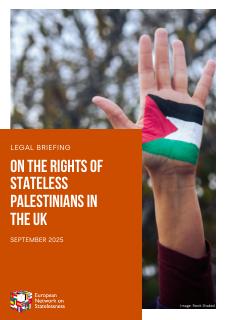
Legal Briefing on the rights of stateless Palestinians in the UK
Type of Resource: Briefing / Policy paper
Theme: Human Rights Enjoyment by Stateless People
Region: Europe
View -
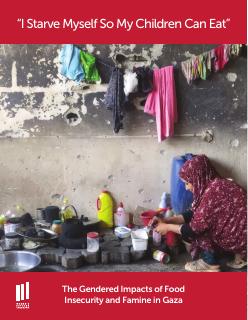
“I Starve Myself So My Children Can Eat”: The Gendered Impacts of Food Insecurity and Famine in Gaza
Type of Resource: Report
Theme: Women
Region: Middle East and North Africa
View -
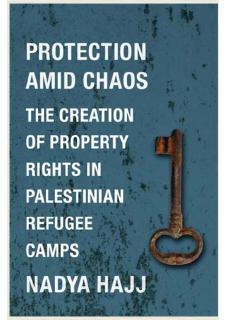
Protection Amid Chaos: The Creation of Property Rights in Palestinian Refugee Camps
Type of Resource: Academic publication
Theme: Lived Experience of Statelessness
Region: Middle East and North Africa
View
